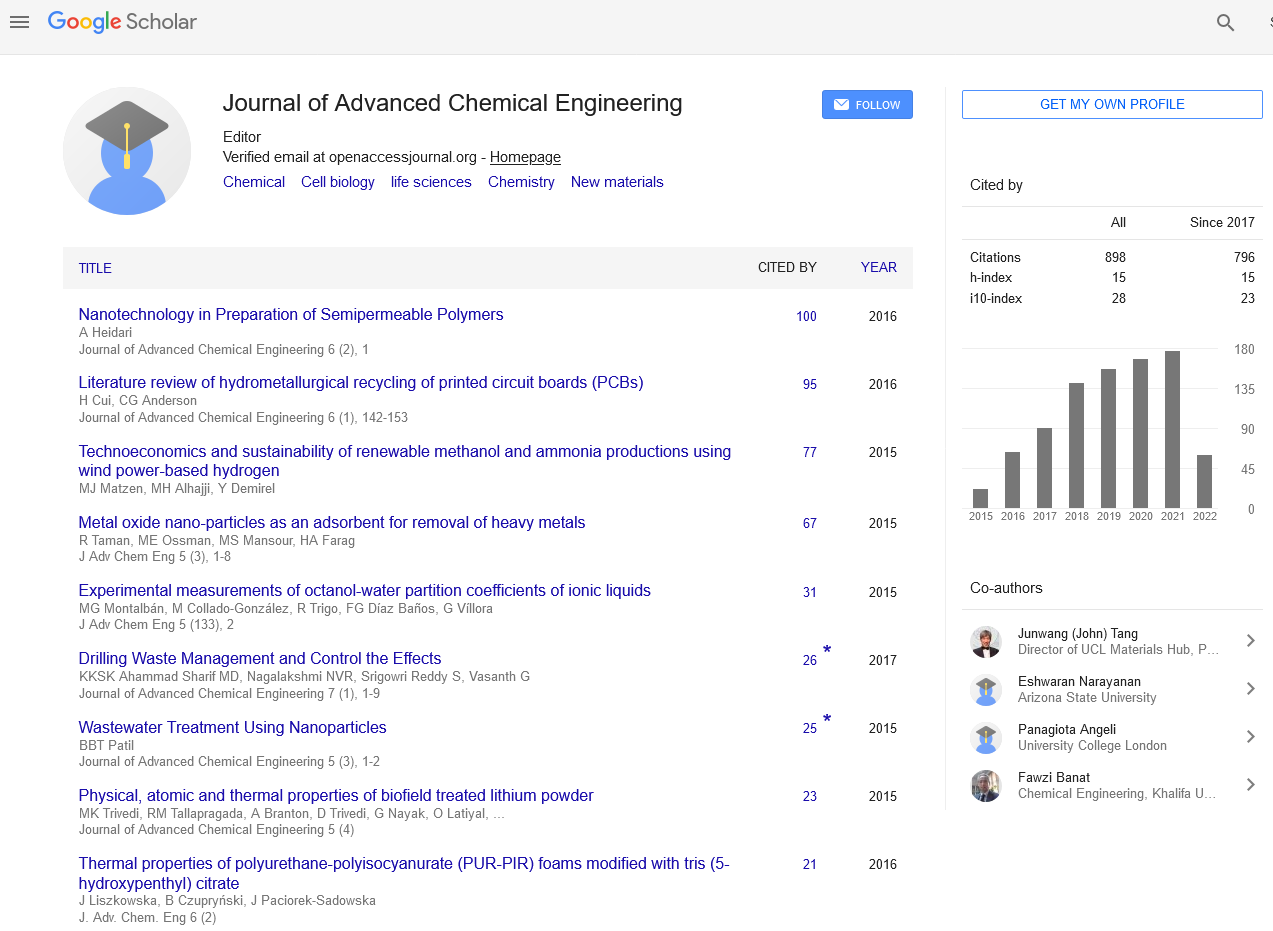Indexed In
- Open J Gate
- Genamics JournalSeek
- Smithers Rapra
- RefSeek
- Directory of Research Journal Indexing (DRJI)
- Hamdard University
- EBSCO A-Z
- OCLC- WorldCat
- Scholarsteer
- Publons
- Geneva Foundation for Medical Education and Research
- Google Scholar
Useful Links
Share This Page
Journal Flyer

Open Access Journals
- Agri and Aquaculture
- Biochemistry
- Bioinformatics & Systems Biology
- Business & Management
- Chemistry
- Clinical Sciences
- Engineering
- Food & Nutrition
- General Science
- Genetics & Molecular Biology
- Immunology & Microbiology
- Medical Sciences
- Neuroscience & Psychology
- Nursing & Health Care
- Pharmaceutical Sciences
Furfuryl low-molecular-weight chitosan derivative as anti-adhesion after tendon regeneration surgery
2nd World Congress on Biopolymers
August 04-05, 2016 Manchester, UK
Tae-Il Son, Ga-Dug Han, Jin-Hong Jeong, Eun-Hye Kim, Tae-Yeon Kim and Yoshihiro Ito
Chung-Ang University, Republic of Korea
Bundang Jesaeng Hospital, Republic of Korea
Nano Medical Engineering Laboratory, RIKEN, Japan
Posters & Accepted Abstracts: J Adv Chem Eng
Abstract:
Visible-light curable low-molecular-weight chitosan derivative (furfuryl low-molecular-weight chitosan, F-LMC) was prepared to reduce adhesion of inter-tissue after surgical operation. If unexpected adhesion is happened after surgical treatment, re-operation is needed because of reserve pains and inflammation reactions to patient. The adhesion that occurs after tendon-repair surgery results in fail to recover original strength of tendon. Recently, to minimizing these side effects, biomaterial barriers, nanofibrous, and gels are used. Chitosan is a natural polymer obtained from the deacetylation of chitin. Chitosan has biocompatibility, wound-healing effect, hemostatic activity, fungistatic, antitumor, anti-cholesteremic activities and biodegradable properties. Especially, β-foam chitosan that was already studied has the anti-bacterial activity than α-foam. High-molecular-weight chitosan is insoluble, while low-molecular-weight chitosan can be dissolved in water. In this study, low-molecular-weight chitosan was modified by introducing furfuryl group for photo-curing. We expect that F-LMC could prevent adhesion because F-LMC could make physical separation by coating the surgical surface. Structure of prepared F-LMC was analyzed using 1H-NMR and photo-reactive property of F-LMC was confirmed through micro-patterning. Also, for medical application, biocompatibility of F-LMC was evaluated by WST assay. In animal experiment, especially chicken model, prepared F-LMC showed improved anti-adhesive property than other groups. From these results, F-LMC could be developed as biocompatible anti-adhesion.
Biography :
Tae-Il Son was awarded the degree of PhD by Tokyo Institute of Technology, Japan in 1989. He is a Professor in the Department of Systems Biotechnology, Chung-Ang University, Republic of Korea and the President of Biomaterial Field in The Korean Society of Industrial and Engineering Chemistry (KSEIC). He has published more than 70 papers in reputed journals.
Email: tisohn@cau.ac.kr


